It is deeply disturbing and troubling to witness that Elyse Semerdjian, an American-Armenian professor of Middle East History at Whitman College, has made blatantly racist remarks concerning the victims of the devastating earthquakes in Türkiye that took place on 6 February.
Recent months have witnessed the moderate and cautious steps taken by Armenian and Turkish governments to normalize relations between their countries that were frozen following Armenia’s illegal and violent occupation of the territories of Azerbaijan in the early 1990s.
As part of this normalization process and as an appreciated gesture of goodwill, Armenia forwarded a rescue team to Türkiye and sent humanitarian aid to the earthquake victims. However, the humanitarian aid has received fierce criticism and opposition from the hardcore nationalists that unfortunately makes up a significant portion of the population in Armenia and in the Armenian Diaspora. The vile and hateful remarks by these people mocked and dehumanized the earthquake victims solely based on their Turkish identity and argued that Armenia should have never sent aid to them.
Rather than condemning and rejecting such racist and hateful remarks, Elyse Semerdjian added fuel to the fire by adding her own racist views to the issue. She assured such ultranationalist Armenians in a Twitter post (tweet) she wrote on 11 February (just 5 days after the earthquake, meaning at a time when many victims were still under the rubble and crying out for help) that the humanitarian aid was only being sent to non-Turkish populations and, according to her, in doing so, Armenia was merely helping non-Turks against the Turks in their “eternal struggles” since the areas affected by the earthquakes were populated by non-Turks and that these were persecuted by and hostile to Turks.
Leaving aside the factual mistakes and the gross oversimplifications by a professor of Middle Eastern History concerning such silly assumptions on the region’s demography and inter-ethnic and religious relations, the idea that a professor in humanities can openly discriminate between the victims of a major disaster to advocate who should and would receive aid based on their ethnicity and religion is quite shocking and revolting. Yet Semerdjian’s tweet received more than four hundred likes, indicating the prevalence of similarly racist minds supporting her position.
A similar remark made against any other ethnicity would no doubt result in a campaign of public outcry and widespread condemnation and would also result in that professor having her/his contract terminated by the college s/he was employed at.
Nonetheless, the reaction to Semerdjian’s racism received no widespread condemnation and her colleagues and employers have been remarkably silent. The American students, who under similar circumstances would condemn, protest, and boycott such professors, also remained passive.
It is both painful and shameful to witness such apathy and indifference towards both the authors and the victims of such outright racist remarks.
The reaction to Semerdjian came mainly from the people in Türkiye, including victims of the disastrous earthquakes. Rather than apologizing and retracting her comments, Semerdjian decided to deactivate her account and run away from the public reactions to her racism.
Semerdjian’s racism should not only be condemned for her bigotry towards Turks and Muslims, but also because her outrageous behavior is sabotaging the normalization process between Armenia and Türkiye both at governmental and societal levels. Thanks to Semerdjian’s racism, many could now attribute the Armenian humanitarian aid to a hidden agenda rather than what it was, a gesture of goodwill.
Therefore, every reasonable human being should join in the condemnation of Professor Elyse Semerdjian’s racist behavior. Such people should not be allowed to teach and spread hatred. Allowing such behavior to go unpunished will only result in greater insults and tragedies for the victims of racism.
© 2009-2025 Center for Eurasian Studies (AVİM) All Rights Reserved
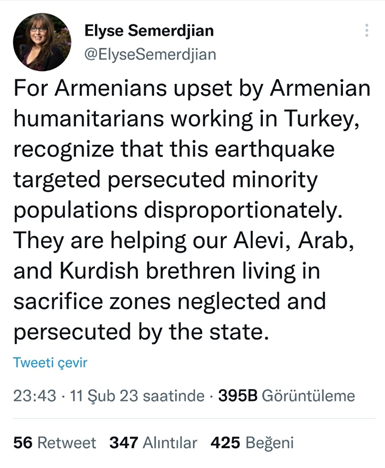
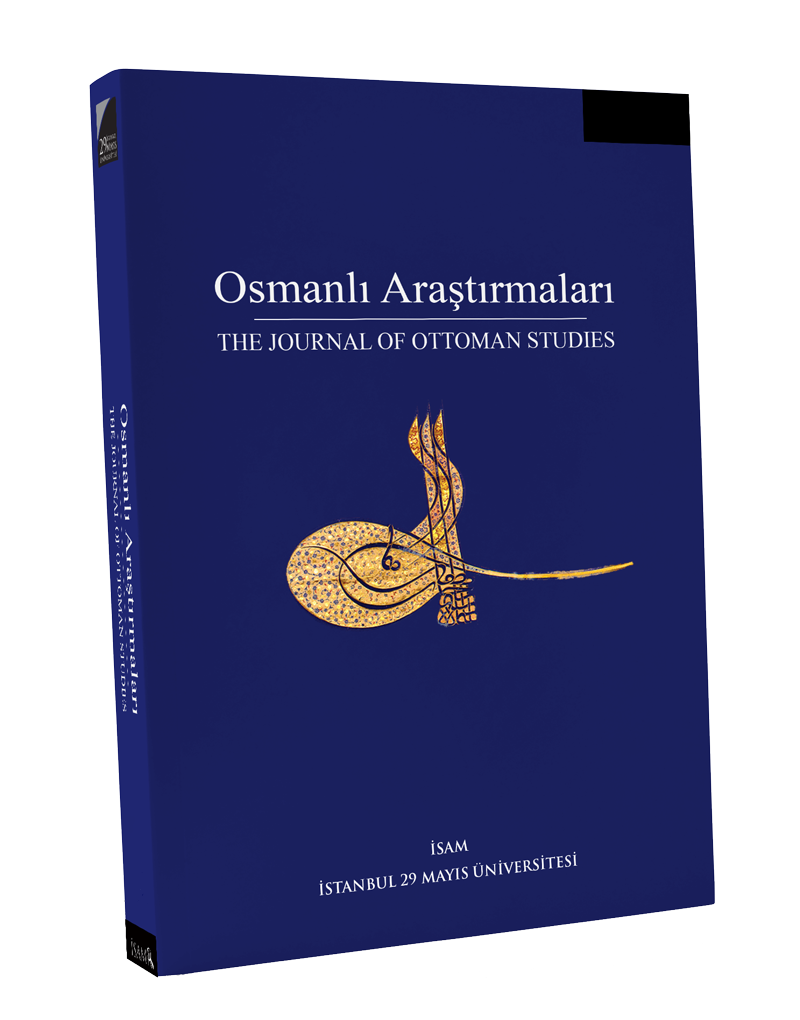 NEW ARTICLE ON THE DASHNAK ERZURUM CONGRESS OF JULY 1914
NEW ARTICLE ON THE DASHNAK ERZURUM CONGRESS OF JULY 1914
 A TALE OF TWO STATEMENTS
A TALE OF TWO STATEMENTS
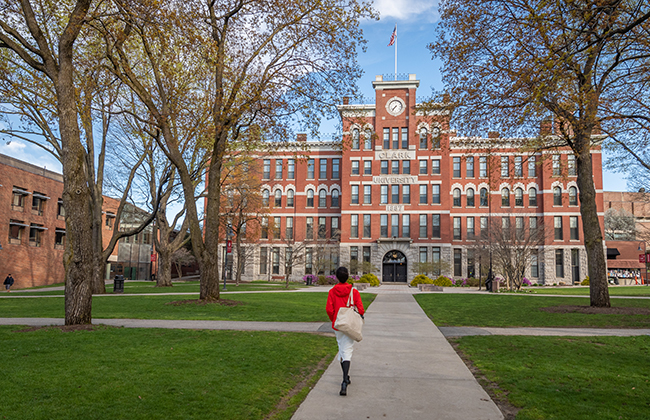 A CONTROVERSIAL AND EMBARRASSING ACADEMIC APPOINTMENT BY AN AMERICAN UNIVERSITY
A CONTROVERSIAL AND EMBARRASSING ACADEMIC APPOINTMENT BY AN AMERICAN UNIVERSITY
 NATIONAL SCHOOLS IN THE OTTOMAN EMPIRE AND THE RISE OF ARMENIAN INSURGENCY
NATIONAL SCHOOLS IN THE OTTOMAN EMPIRE AND THE RISE OF ARMENIAN INSURGENCY
 LETTER BY ATTORNEY BRUCE FEIN IN THE INTEREST OF HISTORICAL AND LEGAL TRUTH
LETTER BY ATTORNEY BRUCE FEIN IN THE INTEREST OF HISTORICAL AND LEGAL TRUTH
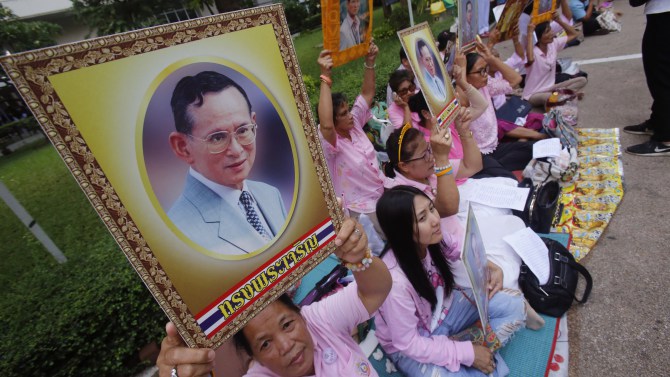 THE SHATTERING OF REGIONAL ANCHOR FOR STABILITY: THE PASSING OF KING BHUMIBOL ADULYADEJ
THE SHATTERING OF REGIONAL ANCHOR FOR STABILITY: THE PASSING OF KING BHUMIBOL ADULYADEJ
 THE FORGED LETTERS ATTRIBUTED TO BAHAETTIN ŞAKIR AND MANIPULATIONS OF TANER AKÇAM
THE FORGED LETTERS ATTRIBUTED TO BAHAETTIN ŞAKIR AND MANIPULATIONS OF TANER AKÇAM
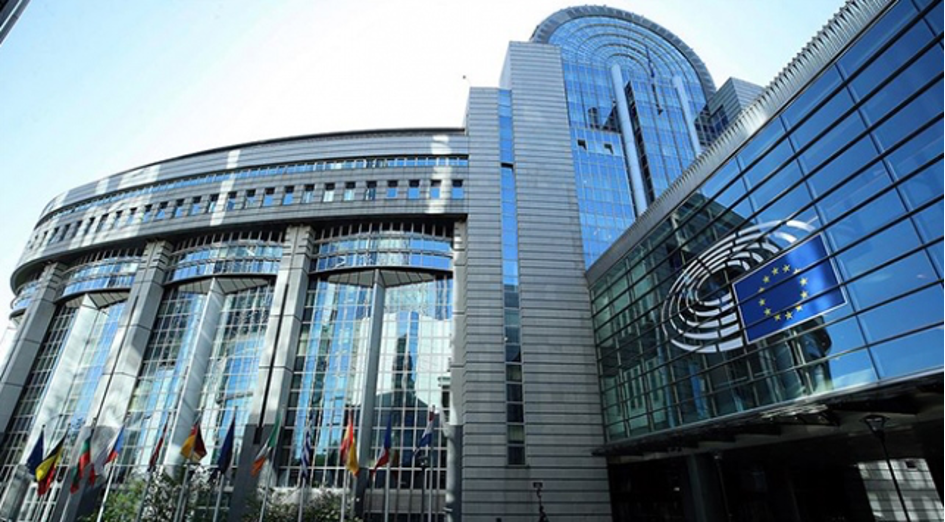 EUROPEAN PARLIAMENT’S REPORT ON TÜRKİYE IN 2022 IS NOT SURPRISING ONCE AGAIN
EUROPEAN PARLIAMENT’S REPORT ON TÜRKİYE IN 2022 IS NOT SURPRISING ONCE AGAIN
THE FAIRYTALES OF BOGHOS
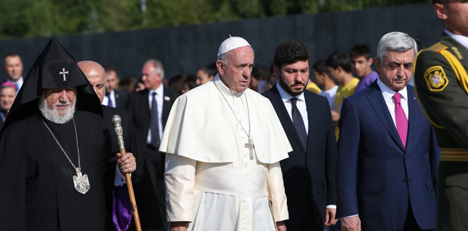 POPE FRANCIS’ PUSH FOR ECUMENISM
POPE FRANCIS’ PUSH FOR ECUMENISM




























